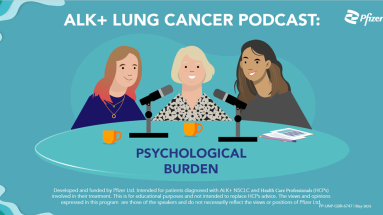Managing nutritional concerns: weight loss
Decreased oral intake of calories, along with the increased energy demands of cancer itself, can lead to rapid loss of body fat and muscle mass. Weight loss can occur when there is a reduced, or a lack of, desire to eat due to painful mouth sores, constipation, pain, nausea, vomiting, depression or changes in digestive function. It is important to bring weight loss to the attention of your doctor as soon as possible so that steps can be taken to manage any symptoms that are leading to weight loss.1 Nutritional counselling can also help by creating a plan to improve appetite and prevent weight loss. Patients may be encouraged to eat high calorie foods and supplement with high-calorie, high-protein meals and shakes.
Tips for people experiencing weight loss2
- You can try eating smaller and more frequent meals (five or six times a day) instead of three large meals – aim to eat something at least every 2 or 3 hours
- You could increase your calorie intake by adding extra butter, olive oil, mayonnaise, sauces, dressing, gravy, honey, jam, cheese and nuts to your meals
- If you need extra protein, try including meat, fish, eggs, yoghurt, cheese, beans and nuts to your meals and snacks. Dried milk powder mixed in gravies, soups and sauces can also help
- Keep nutritious snacks with you when you travel so you can eat whenever you need. High protein snacks such as peanut butter on oat cakes, granola bars, nuts, yoghurt and cheese can be helpful
- Try drinking high calorie liquids such as fruit juice, milkshakes, smoothies and protein drinks
- If recommended by your doctor or healthcare team, you could try nutritional supplements or liquid meal replacements
- Try drinking fluids half an hour before or after meals as some people find consuming beverages with meals can make them feel fuller
- Exercise can help stimulate your appetite – ask your doctor if you should increase your activity
- Try to make mealtimes enjoyable – invite friends or family over or play relaxing music
It can help to talk to your doctor or nurse if you are having problems with weight loss or if you are unable to eat or drink adequate amounts by mouth.
More information on managing weight loss is available at Cancer Research UK
References:
- Weight Loss. Cancer.Net. Accessed August 2022.
- Elliot, L. Symptom Management of Cancer Therapies in Lesser M, Ledesma N, Bergerson S, Trujillo E, eds. Oncology Nutrition for Clinical Practice. Oncology Nutrition Dietetic Practice Group of the Academy of Nutrition and Dietetics: 2013. pg 115.
The health information contained herein is provided for educational purposes only and is not intended to replace discussions with a medical professional. All decisions regarding patient care should be made with a medical professional.
PP-ONC-GBR-2024 / August 2022










